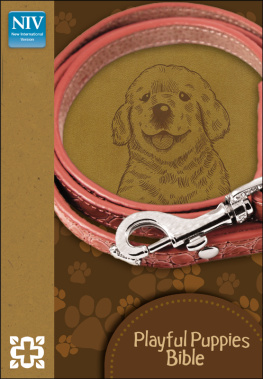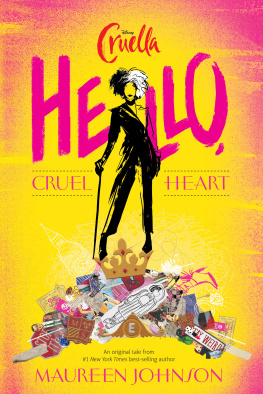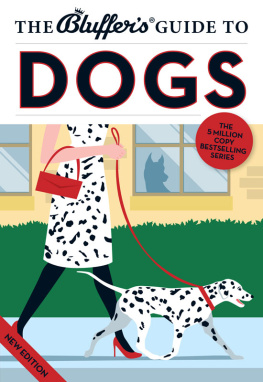Dodie Smith

Not long ago, there lived in London a young married couple of Dalmatian dogs named Pongo and Missis Pongo. (Missis had added Pongos name to her own on their marriage, but was still called Missis by most people.) They were lucky enough to own a young married couple of humans named Mr. and Mrs. Dearly, who were gentle, obedient, and unusually intelligentalmost canine at times. They understood quite a number of barks: the barks for Out, please! In, please! Hurry up with my dinner! and What about a walk? And even when they could not understand, they could often guessif looked at soulfully or scratched by an eager paw. Like many other much-loved humans, they believed that they owned their dogs, instead of realizing that dogs owned them. Pongo and Missis found this touching and amusing and let their pets think it was true.

Mr. Dearly, who had an office in the City, was particularly good at arithmetic. Many people called him a wizard of financewhich is not the same thing as a wizard of magic, though sometimes fairly similar. At the time when this story starts he was rather unusually rich for a rather unusual reason. He had done the Government a great service (something to do with getting rid of the national debt) and, as a reward, had been let off his income tax for life. Also the Government had lent him a small house on the Outer Circle of Regents Parkjust the right house for a man with a wife and dogs.
Before their marriages, Mr. Dearly and Pongo had lived in a bachelor flat, where they were looked after by Mr. Dearlys old nurse, Nanny Butler. Mrs. Dearly and Missis had also lived in a bachelor flat (there are no such things as spinster flats), where they were looked after by Mrs. Dearlys old nurse, Nanny Cook. The dogs and their pets met at the same time and shared a wonderfully happy double engagement, but they were all a little worried about what was to happen to Nanny Cook and Nanny Butler. It would be all right when the Dearlys started a family, particularly if it could be twins, with one twin for each Nanny, but until then, what were the Nannies going to do? For though they could cook breakfast and provide meals on trays (meals called a nice egg by the fire) neither of them was capable of running a smart little house in Regents Park, where the Dearlys hoped to invite their friends to diner.
And then something happened. Nanny Cook and Nanny Butler met and, after a few minutes of deep suspicion, took a great liking to each other. And they had a good laugh about their names.
What a pity were not a real cook and butler, said Nanny Cook.
Yes, thats whats needed now, said Nanny Butler.
And then they both together had the Great Idea: Nanny Cook would train to be a real cook, and Nanny Butler would train to be a real butler. They would start the very next day and be fully trained by the wedding.
But youll have to be a parlourmaid, really, said Nanny Cook.
Certainly not, said Nanny Butler. I havent the figure for it. I shall be a real butlerand I shall valet Mr. Dearly, which will need no training as Ive done it since the day he was born.
And so when the Dearlys and the Pongos got back from their joint honeymoon, there were Nanny Cook and Nanny Butler, fully trained, ready to welcome them into the little house facing Regents Park.
It came as something of a shock that Nanny Butler was wearing trousers.
Wouldnt a black dress with a nice frilly apron be better? suggested Mrs. Dearlyrather nervously, because Nanny Butler had never been her Nanny.
You cant be a butler without trousers, said Nanny Butler firmly. But Ill get a frilly apron tomorrow. It will add a note of originality. It did.
The Nannies said they no longer expected to be called Nanny, and were now prepared to be called by their surnames, in the correct way. But though you can call a cook Cook, the one thing you cannot call a butler is Butler, so in the end both Nannies were just called Nanny, darling, as they always had been.
After the dogs and the Dearlys had been back from their honeymoons for several happy weeks, something even happier happened. Mrs. Dearly took Pongo and Missis across the park to St. Johns Wood, where they called on their good friend, the Splendid Veterinary Surgeon. She came back with the wonderful news that the Pongos were shortly to become parents. Puppies were due in a month.
The Nannies gave Missis a big lunch to keep her strength up, and Pongo a big lunch in case he should feel neglected (as the fathers of expected puppies sometimes do), and then both dogs had a long afternoon nap on the best sofa. By the time Mr. Dearly came home from business they were wide awake and asking for a walk.
Let us all go for a walk, to celebrate, said Mr. Dearly, after hearing the good news. Nanny Cook said the dinner was well ahead, and Nanny Butler said she could do with a bit of exercise, so off they all set along the Outer Circle.
The Dearlys led the way, Mrs. Dearly very pretty in the green going-away suit from her trousseau, and Mr. Dearly in his old tweed jacket, which was known as his dog-walker. (Mr. Dearly wasnt exactly handsome, but he had the kind of face you dont get tired of.) Then came the Pongos, looking noble; they could both have become champions if Mr. Dearly had not felt that dog shows would bore themand him. They had splendid heads, fine shoulders, strong legs, and straight tails. The spots on their bodies were jet-black and mostly the size of a two-shilling piece; they had smaller spots on their heads, legs, and tails. Their noses and eye-rims were black. Missis had a most winning expression. Pongo, though a dog born to command, had a twinkle in his eye. They walked side by side with great dignity, only putting the Dearlys on the leash to lead them over crossings. Nanny Cook (plump) in her white overall, and Nanny Butler (plumper) in a well-cut tail coat and trousers, plus dainty apron, completed the procession.
It was a beautiful September evening, windless, very peaceful. The park and the old, cream-painted houses facing it basked in the golden light of sunset. There were many sounds but no noises. The cries of playing children and the whir of Londons traffic seemed quieter than usual, as if softened by the evenings gentleness. Birds were singing their last song of the day, and farther along the Circle, at the house where a great composer lived, someone was playing the piano.
I shall always remember this happy walk, said Mr. Dearly.
At that moment the peace was shattered by an extremely strident motor horn. A large car was coming towards them. It drew up at a big house just ahead of them, and a tall woman came out onto the front-door steps. She was wearing a tight-fitting emerald satin dress, several ropes of rubies, and an absolutely simple white mink cloak, which reached to the high heels of her ruby-red shoes. She had a dark skin, black eyes with a tinge of red in them, and a very pointed nose. Her hair was parted severely down the middle and one half of it was black and the other whiterather unusual.
Why, thats Cruella de Vil, said Mrs. Dearly. We were at school together. She was expelled for drinking ink.
Isnt she a bit showy? said Mr. Dearly, and would have turned back. But the tall woman had seen Mrs. Dearly and come down the steps to meet her. So Mrs. Dearly had to introduce Mr. Dearly.
Come in and meet my husband, said the tall woman.
But you were going out, said Mrs. Dearly, looking at the chauffeur who was waiting at the open door of the large car. It was painted black and white, in stripesrather noticeable.













